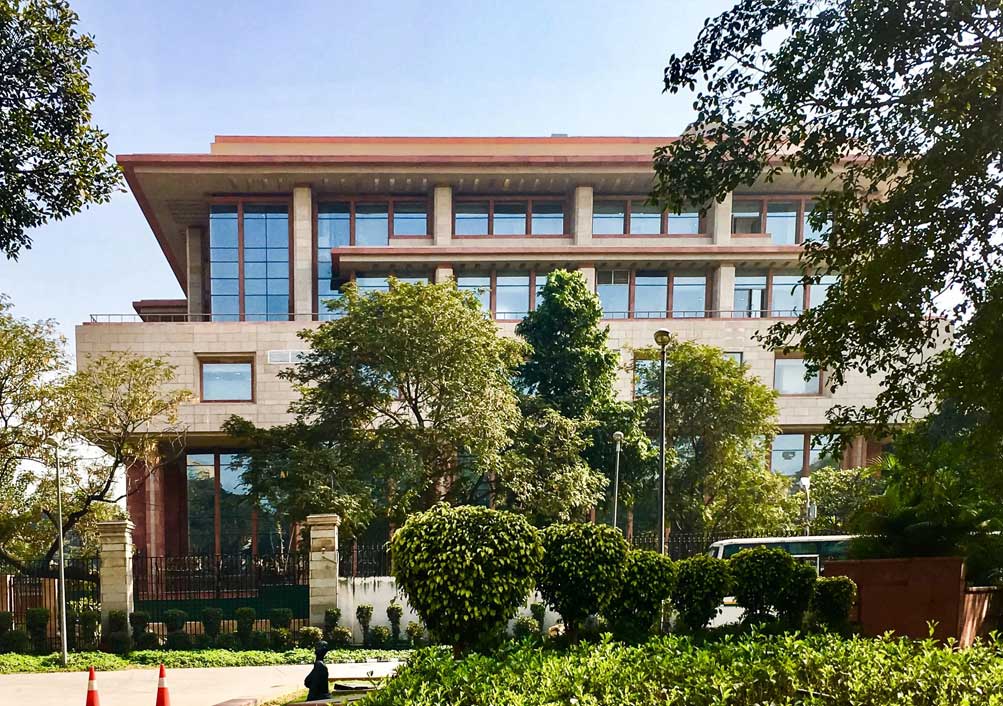In Mat. App. (F.C)14/2023 -DEL HC- ‘Persistent & ongoing unjustifiable behaviour, which adversely impacts physical & mental well-being of the other spouse, can constitute mental cruelty’: Delhi High Court upholds divorce decree
Justice Suresh Kumar Kait & Justice Neena Bansal Krishna [05-09-2023]

Read Order: Preeti V. Vikas
Chahat Varma
New Delhi, September 6, 2023: The Delhi High Court has upheld a divorce decree granted to a man by the Family Court on grounds of cruelty by his wife.
In brief, the admitted facts were as follows: The appellant/wife and the respondent/husband were married on 22.11.2015 according to Hindu Rites and Customs. Initially, they lived together on the second floor of their matrimonial home, while the husband's parents resided on the ground floor. However, their marriage faced difficulties, leading the appellant to return to her parental home in February 2019. She filed a complaint on 21.2.2019, alleging dowry harassment by her husband and his family. Subsequently, the parties reached a settlement and began living separately from the husband's family. Despite these efforts, their differences remained unresolved, and they officially separated on 30.05.2019, with the appellant moving in with her parents. The respondent filed a divorce petition on grounds of cruelty on 06.06.2019, and on 7.6.2019, the appellant lodged a complaint seeking legal action against the petitioner and his family members. Eventually, an FIR was registered under Section 323/34, 354A, 406, 498A, 506 IPC.
In the impugned judgment dated 09.12.2022, the Principal Judge of the Family Court had observed that the incidents that were specified in the case led to the conclusion that the appellant had a quarrelsome nature and frequently engaged in disputes with her husband, which had a detrimental impact on the respondent's life. It was at the insistence of the appellant that she and the respondent began living separately from her in-laws. However, even after this separation, her behaviour did not change, leading the respondent to leave her and stay at her parents' house. The Principal Judge deemed these actions by the appellant as cruel, and as a result, the marriage between the parties was dissolved by a decree of divorce under Section 13(1) (ia) of The Hindu Marriage Act.
The division bench of Justice Suresh Kumar Kait and Justice Neena Bansal Krishna noted that although the appellant had asserted that she was compelled to leave her matrimonial home, her cross-examination revealed that she had left the matrimonial house in February 2019 citing 'bad health' as the reason. This contradiction in her statements contradicted her case, and it casted doubt on the allegation that she had been forced out of her matrimonial home, making it difficult to accept as credible.
The bench also noted that despite the appellant's claims of harassment related to dowry and allegations of mistreatment by the respondent and his family members, none of these acts could be substantiated with evidence.
The bench also took note of the appellant's allegation that on one occasion, the respondent and his family attempted to kill her by leaving the gas stove open while asking her to make tea. However, the bench found it unlikely that such a serious incident would occur in the matrimonial home where other family members also resided. Furthermore, there was no corroborating evidence to support her allegation. Additionally, the incident allegedly occurred on 01.05.2019, but according to the appellant's own admission, she continued to live in the matrimonial home until 31.05.2019. Given the gravity of the alleged attempt on her life, it seemed implausible that she would remain in the same environment without reporting such a significant incident to anyone.
The bench also observed that filing false complaints against the husband and his family members amounted to mental cruelty. Consequently, the bench concluded that such complaints, when not substantiated by evidence and remain unproven, are considered acts of cruelty against the respondent.
The bench stated that continuing and subsisting unjustifiable and reprehensible conduct, which adversely impacts the physical and mental well-being of the other spouse, can constitute mental cruelty.
The bench also added, “Even if it is believed that it was the respondent who had left the appellant at the gates of her parents' house, from the above discussion it is clear that the appellant was cruel to the respondent to the extent that because of the acts of the appellant, he found it extremely difficult to live with her. Thus, there exists a cause for such abandonment and consequently, the respondent cannot be held guilty of desertion.”
Therefore, the division bench concurred with the conclusion of the Principal Judge of the Family Court and found no valid reason to intervene in the divorce decree that was granted in favour of the respondent under Section 13(1) (ia) of the Hindu Marriage Act.
Sign up for our weekly newsletter to stay up to date on our product, events featured blog, special offer and all of the exciting things that take place here at Legitquest.




Add a Comment